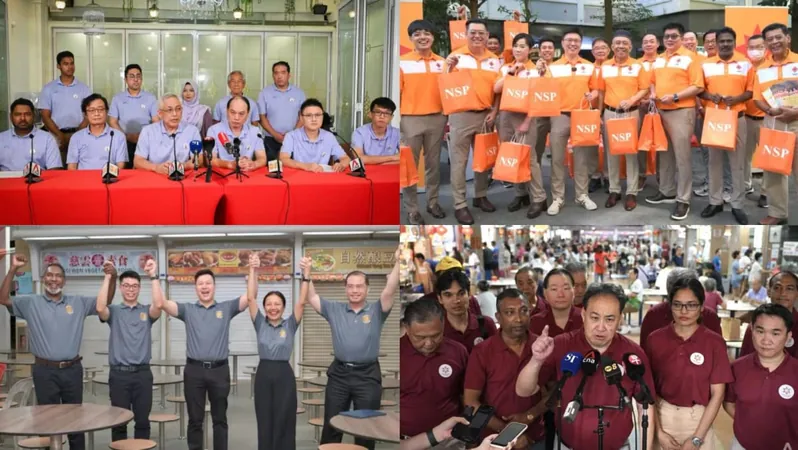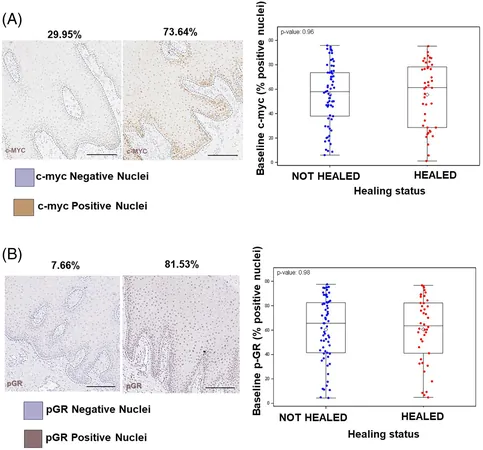
2025 General Election: A Wake-Up Call for Singapore's Opposition Parties!
2025-05-06
Author: Mei
Time for Reflection: Opposition Parties at a Crossroads
After the recent 2025 General Election, some opposition parties in Singapore faced disappointing results, prompting political analysts to urge them to rethink their strategies or risk fading into obscurity. If these factions don’t reassess their role in Singapore's political theater, they could find themselves irrelevant.
The Numbers Don't Lie
During the May 3 polls, 27 candidates from four opposition parties collectively secured less than 12.5% of the votes in their districts, resulting in the loss of substantial election deposits averaging about S$13,500 each. Meanwhile, the ruling People’s Action Party (PAP) dazzled voters with a commanding 65.57% of the national vote, marking a 4-point improvement from their 2020 performance.
In stark contrast, the Workers' Party (WP) thrived, winning 12 seats in parliament and boosting their margins in key areas.
A Stark Reality Check
Political experts, including Dr. Elvin Ong from the National University of Singapore (NUS), say the low voter share illustrates that residents have 'decisively rejected' these parties. Despite offering numerous policy proposals, their inability to present credible candidates and maintain disciplined campaigns has turned voters away.
What’s Next for Smaller Parties?
As analysts point out, parties that lost their deposits must now reflect on whether they are helping or hindering the opposition's overall influence in Singapore. While contesting elections is a right, gaining votes requires convincing the electorate, a task these parties have failed.
Challenges Ahead
Smaller parties can highlight specific issues during elections, but they must also engage with constituents regularly to build support. However, changing electoral boundaries complicate their efforts, making it challenging for them to create lasting impacts in their areas.
Following this year's results, voters seem to demand an opposition capable of contributing meaningfully to national discourse through innovative policy ideas rather than opposing for the sake of dissent.
The Path to Relevance
Experts suggest that to regain significance, opposition parties must offer clearly defined policy positions that resonate with voter preferences. Consolidating resources among smaller parties can help address critical issues, including attracting talent and managing leadership transitions.
RDU: A Ray of Hope?
Notably, Red Dot United (RDU) managed to field a record number of candidates, which bolstered its performance to a vote share of 3.96%. Although this was an improvement, experts remain skeptical about whether RDU can maintain momentum. To thrive, they need to broaden their appeal across diverse demographics in Singapore.
Conclusion: A Call to Action
For opposition parties in Singapore, the 2025 election results serve as a crucial wake-up call. It's time to evolve, consolidate, and engage authentically with voters, or risk being overshadowed in the ever-competitive political landscape.


 Brasil (PT)
Brasil (PT)
 Canada (EN)
Canada (EN)
 Chile (ES)
Chile (ES)
 Česko (CS)
Česko (CS)
 대한민국 (KO)
대한민국 (KO)
 España (ES)
España (ES)
 France (FR)
France (FR)
 Hong Kong (EN)
Hong Kong (EN)
 Italia (IT)
Italia (IT)
 日本 (JA)
日本 (JA)
 Magyarország (HU)
Magyarország (HU)
 Norge (NO)
Norge (NO)
 Polska (PL)
Polska (PL)
 Schweiz (DE)
Schweiz (DE)
 Singapore (EN)
Singapore (EN)
 Sverige (SV)
Sverige (SV)
 Suomi (FI)
Suomi (FI)
 Türkiye (TR)
Türkiye (TR)
 الإمارات العربية المتحدة (AR)
الإمارات العربية المتحدة (AR)